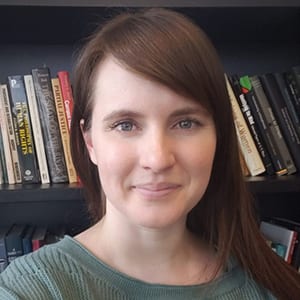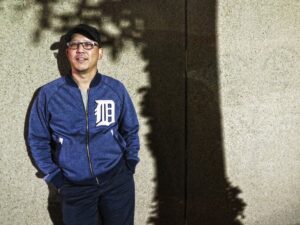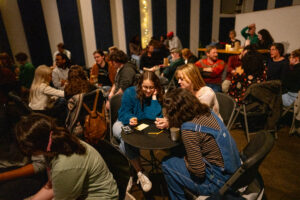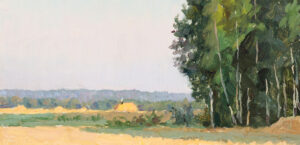Third annual UGA Humanities Festival runs March 11 – April 2
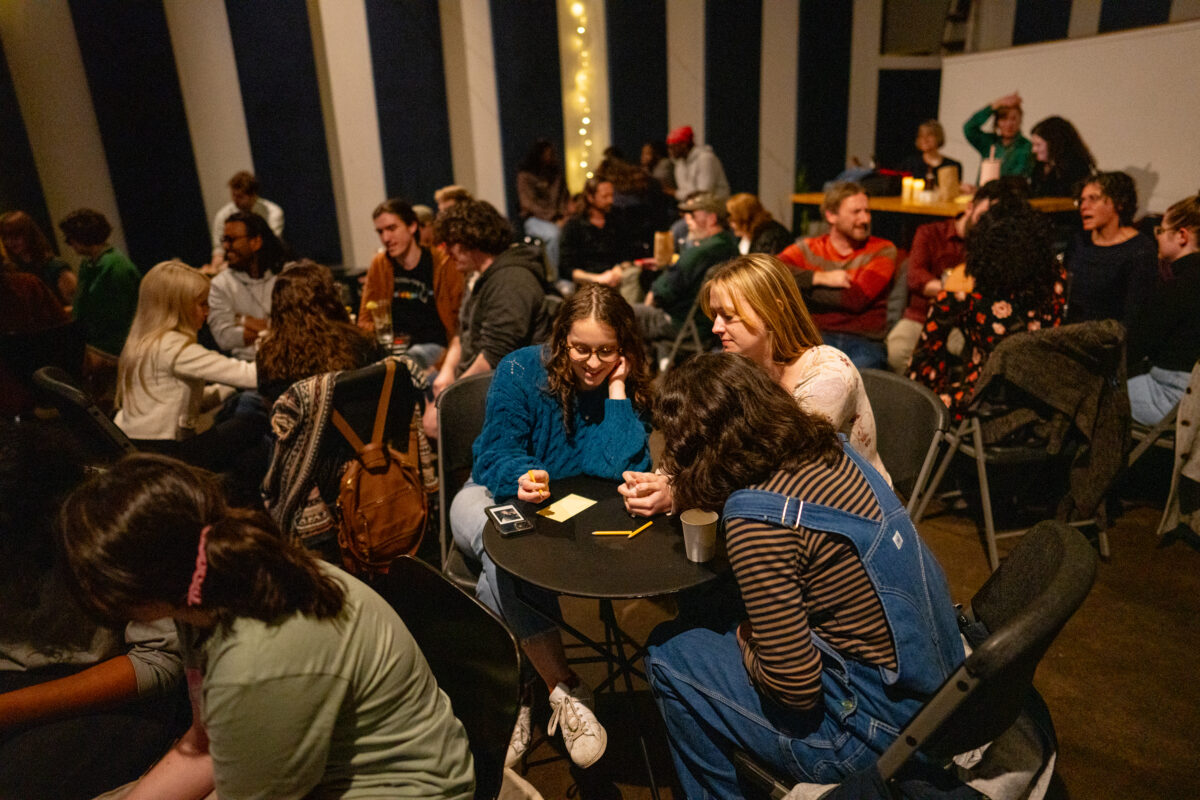
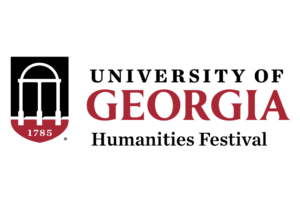 The University of Georgia Humanities Festival is an annual series of public events showcasing the richness and diversity of research and practice in the humanities at UGA and throughout our extended community. The third annual UGA Humanities Festival will take place March 11-April 2, 2025, featuring lectures, conversations, performances, social gatherings, and keynote events.
The University of Georgia Humanities Festival is an annual series of public events showcasing the richness and diversity of research and practice in the humanities at UGA and throughout our extended community. The third annual UGA Humanities Festival will take place March 11-April 2, 2025, featuring lectures, conversations, performances, social gatherings, and keynote events.
More events will be added to the festival schedule as they are finalized.
The UGA Humanities Council is supported by the Office of Research, the Office of the Provost, and the Franklin College of Arts and Sciences, with the participation of more than 30 colleges, schools, departments, and units across the university.
Keynote Events
POSTPONED: Robert Spano Delta Chair events
Unfortunately, the events scheduled for Monday, March 24 with Delta Visiting Chair for Global Understanding Robert Spano will be postponed due to illness. These include his talk “Behind the Baton: An Inside Look at How Major Orchestras Operate” at 11:30 a.m., a workshop with students in the Hugh Hodgson School of Music at 2 p.m., and a talk on the Atlanta School of Composers at 5 p.m. We are working to reschedule these events and will announce our revised plans as soon as possible.
Mar 17 • 5:30 pm • Founders Garden
UGA Humanities Festival Student and Faculty Appreciation Reception
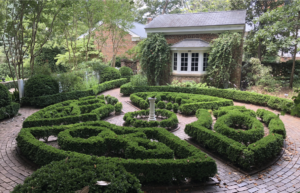 All are invited to a public gathering with refreshments and conversation to begin the UGA Humanities Festival in its third year, with recognition of outstanding achievements by members of the UGA humanities and arts communities. The program begins at 5:30 p.m. with remarks by UGA Humanities Council co-chairs Jeanette Taylor, Vice Provost for Academic Affairs, and Nicholas Allen, Baldwin Professor in Humanities and Director of the Willson Center for Humanities and Arts. We will also hear from UGA students and faculty with notable achievements in their scholarship and practice during the past year.
All are invited to a public gathering with refreshments and conversation to begin the UGA Humanities Festival in its third year, with recognition of outstanding achievements by members of the UGA humanities and arts communities. The program begins at 5:30 p.m. with remarks by UGA Humanities Council co-chairs Jeanette Taylor, Vice Provost for Academic Affairs, and Nicholas Allen, Baldwin Professor in Humanities and Director of the Willson Center for Humanities and Arts. We will also hear from UGA students and faculty with notable achievements in their scholarship and practice during the past year.
Mar 20 • 7:30 pm • Hodgson Concert Hall
Anoushka Shankar
 Anoushka Shankar marks the culmination of her recent trilogy of mini-albums: ‘Chapter I: Forever, For Now,’ ‘Chapter II: How Dark it Is Before Dawn’ and ‘Chapter III: We Return to Light’ with a visionary new live show, which comes to the UGA Performing Arts Center as part of the Voices of Asia spring series.
Anoushka Shankar marks the culmination of her recent trilogy of mini-albums: ‘Chapter I: Forever, For Now,’ ‘Chapter II: How Dark it Is Before Dawn’ and ‘Chapter III: We Return to Light’ with a visionary new live show, which comes to the UGA Performing Arts Center as part of the Voices of Asia spring series.
Written and released back-to-back during two years of an experimental, creatively-charged global tour of an ever-evolving program, the performance of each Chapter infused the composition of the next. After first exploring the transient, bittersweet joy of a summer afternoon on Chapter I and an immersion into a healing, womblike night on Chapter II, Chapter III completes the cycle, leading audiences through each movement and into the strong, golden heat of morning- a time of strength, wisdom and change.
With 30 years’ performance since her teenaged debut, eleven Grammy nominations and an Honorary Degree in Music from Oxford University under her belt, Anoushka has spent her career redefining the conventions of the sitar. Alongside an ensemble celebrated for their endless virtuosity, sensitivity and ear for improvisation, this show sees Anoushka expand the vocabulary of her sitar, looping and bending sound to create a bold new Indo-futurist vision for her music.
Mar 24 • 5 pm • Edge Recital Hall
Delta Visiting Chair Robert Spano on the Atlanta School of Composers
POSTPONED: Robert Spano Delta Chair events
Unfortunately, the events scheduled for Monday, March 24 with Delta Visiting Chair for Global Understanding Robert Spano will be postponed due to illness. These include his talk “Behind the Baton: An Inside Look at How Major Orchestras Operate” at 11:30 a.m., a workshop with students in the Hugh Hodgson School of Music at 2 p.m., and a talk on the Atlanta School of Composers at 5 p.m. We are working to reschedule these events and will announce our revised plans as soon as possible.
The Willson Center for Humanities and Arts and the Hugh Hodgson School of Music will welcome the renowned conductor and orchestra director Robert Spano to UGA and Atlanta March 21-24, 2025 as the Willson Center’s annual Delta Visiting Chair for Global Understanding. Spano’s visit, which will include two public talks on campus and a workshop for UGA student composers with the Atlanta Symphony Orchestra, is part of the Willson Center’s Global Georgia public event series.
Spano is music director of the Fort Worth Symphony Orchestra and Music Director Laureate of the ASO, where he served as music director for 20 years. He will begin a three-year term as music director of the Washington National Opera with the 2025-2026 season.
Spano has won four Grammy Awards and been nominated for eight, all for recordings with the ASO. He received the Georgia Governor’s Award for the Arts and Humanities in 2020, and was inducted into the Georgia Music Hall of Fame in 2012 – one of just two classical musicians who have been so honored. Spano has served as music director of the Aspen Music Festival and School since 2011, overseeing hundreds of events and educational programs for students and young musicians, and directs the Aspen Conducting Academy. He is currently principal conductor of the Rhode Island Philharmonic Orchestra and Music School, and will transition to principal guest conductor for its 2025-2026 season.
UGA music composition students will participate in a workshop with Spano and ASO musicians in Atlanta on Friday, March 21. The students will meet privately with Spano before a public reading and rehearsal of their works by the orchestra in Atlanta Symphony Hall from 11 a.m. – 1:30 p.m. The students will then participate in a post-workshop discussion with Spano and ASO musicians, which will also be open to the public.
Spano will be in residence at UGA on Monday, March 24. He will give a public talk, “Behind the Baton: An Inside Look at How Major Orchestras Operate,” in partnership with the Music Business Program at 11:30 a.m. in Room 350 of the Miller Learning Center, and another public presentation at 5 p.m. in the Hodgson School’s Edge Recital Hall. Spano’s 5 p.m. talk will focus on the Atlanta School of Composers, a group including Jennifer Higdon, Christopher Theofanidis, Osvaldo Golijov, Michael Gandolfi, and Adam Schoenberg, whose works Spano helped to commission and premiere throughout his tenure with the Atlanta Symphony. He will reflect on his cultivation of this important collection of 21st-century orchestral music, and share audio examples from performances.
Mar 26 • 4 pm • Chapel
Betty Jean Craige Lecture: Charles Johnson – Reading and Conversation
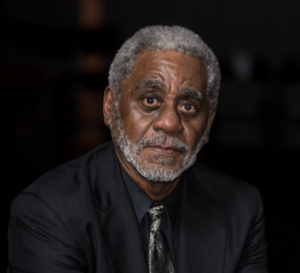 This event is presented as the Department of Comparative Literature and Intercultural Studies’s annual Betty Jean Craige Lecture, co-sponsored by the Willson Center for Humanities and Arts and the UGA Humanities Council as part of the university’s 2025 Humanities Festival and the Willson Center’s Global Georgia public events series. Author Charles Johnson will read from his work, then take part in a conversation with Hyangsoon Yi, professor of comparative literature and intercultural studies, and Caroline Medine, All Shall Be Well Professor in Religion and director of the Institute for African American Studies.
This event is presented as the Department of Comparative Literature and Intercultural Studies’s annual Betty Jean Craige Lecture, co-sponsored by the Willson Center for Humanities and Arts and the UGA Humanities Council as part of the university’s 2025 Humanities Festival and the Willson Center’s Global Georgia public events series. Author Charles Johnson will read from his work, then take part in a conversation with Hyangsoon Yi, professor of comparative literature and intercultural studies, and Caroline Medine, All Shall Be Well Professor in Religion and director of the Institute for African American Studies.
The Betty Jean Craige Lecture honors Craige, University Professor Emerita of Comparative Literature and a former director of the Willson Center. The Institute for African American Studies, the department of English, and the Creative Writing Program are also co-presenters of the event.
Charles Johnson is the author of 27 books, among them the novels Middle Passage, Oxherding Tale, Faith and the Good Thing, and Dreamer; the story collections The Sorcerer’s Apprentice (nominated for a PEN/Faulkner award), Soulcatcher and Other Stories, and Dr. King’s Refrigerator and Other Bedtime Stories; and works of philosophy and criticism such as Being and Race: Black Writing Since 1970 and Turning the Wheel: Essays on Buddhism and Writing.
He is also a screenwriter, essayist, professional cartoonist, international lecturer, and for 20 years served as fiction editor of Seattle Review. He received the 1990 National Book Award (fiction) for Middle Passage, NEA and Guggenheim fellowships, a Writers Guild Award for his PBS drama “Booker,” two Washington State Governor’s Awards for literature, the Academy Award for Literature from the American Academy of Arts and Letters, and numerous other prizes and honorary degrees. In 1998 he received a John D. and Catherine T. MacArthur Fellowship (“genius” grant), and in 2003 literary scholars founded the Charles Johnson Society at the American Literature Association.
Johnson is Pollock Professor Emeritus of English at the University of Washington.
Mar 27 • 5:30 pm • Jackson Street Building 125
Ferdia Lennon – Reading and Conversation
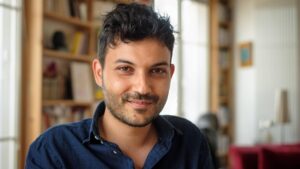 This event is presented by the Willson Center for Humanities and Arts and by the UGA Humanities Council as part of the university’s 2025 Humanities Festival, in partnership with the departments of English and classics. It is also part of the Willson Center’s Global Georgia public events series and UGA’s Spring Signature Lecture Series.
This event is presented by the Willson Center for Humanities and Arts and by the UGA Humanities Council as part of the university’s 2025 Humanities Festival, in partnership with the departments of English and classics. It is also part of the Willson Center’s Global Georgia public events series and UGA’s Spring Signature Lecture Series.
Ferdia Lennon was born and raised in Dublin. He holds a BA in History and Classics from University College Dublin and an MA in Prose Fiction from the University of East Anglia. Glorious Exploits is his first novel. A Sunday Times bestseller, it was adapted for BBC Radio 4 and was the winner of the Waterstones Debut Fiction Prize and the Bollinger Everyman Wodehouse prize for comic fiction for 2024. Lennon has also been shortlisted for the world’s largest and most prestigious literary award for young writers, the Swansea University Dylan Thomas Prize.
Glorious Exploits was published in the U.S. by MacMillan in 2024, and will be released in paperback in March, 2025. Along with winning the Waterstones and Bollinger prizes, it was shortlisted for the Nero Book Award for Debut Fiction (formerly the Costa Book Awards) and for the Newcomer of the Year by the Irish Book Awards, and was longlisted for the Carnegie Medal of Excellence.
From the publisher:
On the island of Sicily amid the Peloponnesian War, the Syracusans have figured out what to do with the surviving Athenians who had the gall to invade their city: they’ve herded the sorry prisoners of war into a rock quarry and left them to rot. Looking for a way to pass the time, Lampo and Gelon, two unemployed potters with a soft spot for poetry and drink, head down into the quarry to feed the Athenians if, and only if, they can manage a few choice lines from their great playwright Euripides. Before long, the two mates hatch a plan to direct a full-blown production of Medea. After all, you can hate the people but love their art. But as opening night approaches, what started as a lark quickly sets in motion a series of extraordinary events, and our wayward heroes begin to realize that staging a play can be as dangerous as fighting a war, with all sorts of risks to life, limb, and friendship.
Told in a contemporary Irish voice and as riotously funny as it is deeply moving, Glorious Exploits is an unforgettable ode to the power of art in a time of war, brotherhood in a time of enmity, and human will throughout the ages.
Those in need of any accommodations in order to attend this event should contact Dave Marr, Willson Center director of communications, at davemarr@uga.edu at least seven days before the event.
Apr 2 • 4 pm • Jackson Street Building 125
Wade Davis – “The Wayfinders: Why Ancient Wisdom Matters in a Modern World”
 Wade Davis, professor of anthropology and the BC Leadership Chair in Cultures and Ecosystems at Risk at the University of British Columbia, will give the 2025 Odum Environmental Ethics Lecture. Davis’s talk, based on his 2009 book The Wayfinders: Why Ancient Wisdom Matters in the Modern World, is presented by the Environmental Ethics Certificate Program and the Willson Center for Humanities and Arts.
Wade Davis, professor of anthropology and the BC Leadership Chair in Cultures and Ecosystems at Risk at the University of British Columbia, will give the 2025 Odum Environmental Ethics Lecture. Davis’s talk, based on his 2009 book The Wayfinders: Why Ancient Wisdom Matters in the Modern World, is presented by the Environmental Ethics Certificate Program and the Willson Center for Humanities and Arts.
An ethnographer, writer, photographer and filmmaker, Davis served as Explorer-in-Residence at the National Geographic Society from 2000-2013. Named by the NGS as one of the Explorers for the Millennium, he has been described as “a rare combination of scientist, scholar, poet and passionate defender of all of life’s diversity.” Davis is the author of hundreds of articles and 23 books including The Serpent and the Rainbow (1986), One River: Explorations and Discoveries in the Amazon Rain Forest (1996), Magdalena: River of Dreams (2020), and The Wayfinders.
Every culture is a unique answer to a fundamental question: What does it mean to be human and alive? In this talk, Wade Davis leads us on a thrilling journey to celebrate the wisdom of the world’s indigenous cultures. In Polynesia we set sail with navigators whose ancestors settled the Pacific ten centuries B.C. In the Amazon we meet the descendants of a true Lost Civilization, the Peoples of the Anaconda. In the Andes we discover that the Earth really is alive, while in the far reaches of Australia we experience Dreamtime, the all-embracing philosophy of the first humans to walk out of Africa. We then travel to Nepal, where we encounter a wisdom hero, a Bodhisattva, who emerges from 45 years of Buddhist retreat and solitude. And finally, we settle in Borneo, where the last rainforest nomads struggle to survive.
Understanding the lessons of this journey will be our mission for the next century. Of the world’s 7000 languages, fully half may disappear within our lifetimes. At risk is a vast archive of knowledge and expertise, a catalogue of the imagination that is the human legacy. Rediscovering a new appreciation for the diversity of the human spirit, as expressed by culture, is among the central challenges of our time.
Full Calendar of Events
Join Anna Stenport, professor of communication studies with an appointment in the Institute for Women’s and Gender Studies and dean of the Franklin College of Arts and Sciences at the University of Georgia, for a screening and conversation about one of the most influential feminist films of the late 1960s and 1970s, Swedish director Mai Zetterling’s The Girls (Flickorna, 1968). A masterpiece of modernist art cinema, The Girls is a visually stunning, narratively complex, comedically paced, and compellingly acted film that questions gender roles and blurs boundaries between film, fiction, and life.
The program features a brief introduction to the film by Dr. Stenport, the screening (100 min; film is sub-titled in English), and conversation. The event, part of the 2025 UGA Humanities Festival, is free and open to the public; students and the university community are warmly welcomed.
Mar 13 • 4 pm • Peabody Hall 115
S.M. Love – “Property and Domination”
S.M. Love is an assistant professor of philosophy with a joint appointment at the College of Law at Georgia State University. Her primary research interests are in political and legal theory, where she aims to show that Immanuel Kant’s theory of right has a great deal to offer to contemporary discussions of political and legal theory. In addition, Love also studies Karl Marx’s treatment of capitalism. Her current research focuses on discussing economic and property systems within the framework of Kant’s theory of right. Love argues that the innate right to freedom, which serves as the foundation of Kant’s theory of right, both entails robust socioeconomic rights and is inconsistent with capitalism.
Love’s talk argues that the primary wrong in situations where some are made dependent on others for the material resources required for their survival is not this relationship of dependence, it is that they are denied the means for their survival in the first place.
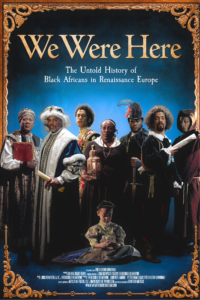 Mar 14 • 5:30 pm • Georgia Museum of Art
Mar 14 • 5:30 pm • Georgia Museum of Art
Screening and Conversation – We Were Here: Black Africans in Renaissance Europe
The Willson Center for Humanities and Arts, the Georgia Museum of Art, the UGA Humanities Council, and the department of history will present a screening of We Were Here – The Untold History of Black Africans in Renaissance Europe, a groundbreaking documentary directed by Fred Kuwornu, as part of the 2025 UGA Humanities Festival and the Willson Center’s Global Georgia public event series. A moderated in-person conversation with Kuwornu will follow the screening, which is free and open to the public.
We Were Here, filmed across Italy, France, Spain, Portugal, England, The Netherlands, and Brazil and showcased at the 60th International Venice Biennale of Art in 2024, explores the presence of Africans in Europe during the 15th and 16th centuries through the reinterpretation of famous paintings depicting Africans. It is a unique work in terms of both aesthetics and content, attracting many visitors and receiving wide international acclaim. This multilingual film helps students understand Europe’s historical and current context regarding its Black population, exploring the evolution of racial concepts since the 16th century and revealing the untold stories and roles of influential African-Europeans during the Renaissance, including ambassadors, princes, saints, writers, and painters like Juan de Pareja. This film offers an invaluable resource for academic discussions, inviting deeper exploration of African contributions to European history and art.
 Mar 15 • 6:30 pm • Fine Arts 400 (Balcony Theatre)
Mar 15 • 6:30 pm • Fine Arts 400 (Balcony Theatre)
Screening and Conversation: Northern Lights (1978) with Co-director John Hanson
This free, public screening of the 1978 film Northern Lights, featuring an in-person conversation with co-director John Hanson, is presented by the department of theatre and film studies and the Willson Center.
Winner of the Camera d’Or at the 1979 Cannes Film Festival, John Hanson and Rob Nilsson’s Northern Lights marks one of the most moving and committed works of political cinema from the late 1970s. Its critical and festival acclaim heralded the rise to prominence of American indie cinema a decade later, as kicked off by the Sundance showing of sex, lies and videotape in 1989.
Dramatizing the formation of the populist Nonpartisan League in North Dakota in the mid-1910s, Northern Lights captures the plight of immigrant Dakotan farmers as they toil and struggle against the combined forces of industry and finance. Amid this paroxysm of class tension, two young lovers find themselves swept up in the tide. Shot on location (on grain-rich black-and-white 16mm) in the dead of winter and featuring an astonishing cast of non-professional actors, this handmade masterpiece remains a stirring monument to collectivity.
Northern Lights will be shown in a new, 4K digital restoration—the version which premiered to a rapturous reception at last fall’s New York Film Festival. Following the screening, co-director John Hanson will speak about his experience making the film and answer questions from those in attendance, in a session moderated by Christopher Sieving, associate professor of film studies.
 Mar 17 • 5:30 pm • Founders Garden
Mar 17 • 5:30 pm • Founders Garden
UGA Humanities Festival Student and Faculty Appreciation Reception
All are invited to a public gathering with refreshments and conversation to begin the UGA Humanities Festival in its third year, with recognition of outstanding achievements by members of the UGA humanities and arts communities. The program begins at 5:30 p.m. with remarks by UGA Humanities Council co-chairs Jeanette Taylor, Vice Provost for Academic Affairs, and Nicholas Allen, Baldwin Professor in Humanities and Director of the Willson Center for Humanities and Arts. We will also hear from UGA students and faculty with notable achievements in their scholarship and practice during the past year.
 Mar 18 • 9 am – 5 pm • Outside Main Library
Mar 18 • 9 am – 5 pm • Outside Main Library
The classical Roman writer Lucretius was not a scientist. However, he was a convert. The Greek philosopher Epicurus had developed a theory of how the collision of atoms brought about all the phenomena of everyday life and that human happiness could only be attained by banishing superstition through a careful study of the universe and its processes.
Lucretius took the ideas of Epicurus and created one of the most remarkable documents of the ancient world, a full-throated exposition of the Epicurean world-view. This work has come down to us in a poem called de rerum natura, On the Nature of Things.
In honor of this work, which highlights the close historical link between the humanities and the science disciplines, you are invited to join in a public reading of Lucretius’ poem outside the Main Library on Tuesday, March 18 from 9 a.m. to 5 p.m. We will be reading from the translation of Classics UGA alumna and MacArthur Prize winner A.E. Stallings. Readers will include UGA students, administrators, faculty members, and community residents and public officials.
If you would like to join us as a reader please contact Charles Platter (cplatter@uga.edu). Reading times are available throughout the day. We would live to have you there!
 Mar 18 • 10 am • Data Studio @ Main (Main Library 300) / Zoom
Mar 18 • 10 am • Data Studio @ Main (Main Library 300) / Zoom
Digital Humanities Lightning Talks
The UGA Libraries Research and Computational Data Management (RCDM) team presents a digital humanities project showcase with researchers from UGA and Ludwig Maximilian University – Munich’s ITG digital humanities competence and data center. This session features lighting talks from both institutions on projects involving text analysis, data visualization, and more. Join us in person in the Data Studio or online by registering here.
Mar 18 • 4 pm • Special Collections Libraries Building
The Institute for Women’s and Gender Studies at the University of Georgia continues its longstanding annual tradition of hosting special events throughout March to recognize Women’s History Month. These events provide opportunities for the UGA campus and broader community to access the diverse perspectives, rich history, and cultural impact of women.
The 2025 Women’s History Month theme, as determined by the National Women’s History Alliance, is “Moving Forward Together! Women Educating & Inspiring Generations.” This theme celebrates the powerful influence of women who have dedicated their lives to education, mentorship, and leadership.
For the Women’s History Month Keynote Address, the institute is delighted to welcome changemaker, educator, writer, and president of the James and Grace Lee Boggs Foundation Scott Kurashige. Kurashige’s experience as an urban community organizer in cities like Los Angeles and Detroit, his work on the enduring problem of anti-Asian and anti-Black violence in the US, and in particular his ongoing work with the James and Grace Lee Boggs foundation make Kurashige the perfect exemplar for this year’s theme. His keynote address will center on his work with Grace Lee Boggs during her lifetime and extending her teachings and legacy for future generations.
The UGA Humanities Festival’s most competitive event returns as host Mark Mobley brings his wit, intelligence, and disciplinary skills to an evening of humanities-related trivia, prizes, fun, and recrimination. Form a team in advance or on the spot to compete at trivia on humanities-related topics that will make you wish you’d paid more attention in class, or at least remembered a few of the internet rabbit holes you went down last year. Free and open to all.
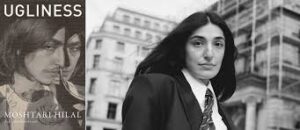 Mar 19 • 12:30 pm • Fine Arts 400 (Balcony Theatre)
Mar 19 • 12:30 pm • Fine Arts 400 (Balcony Theatre)
Moshtari Hilal – Artist Talk and Reading: Ugliness
In Ugliness (New Vessel Press, 2025), Moshtari Hilal, an Afghan-born author and artist who lives in Germany, has written a touching, intimate, and highly political book. Dense body hair, crooked teeth, and big noses: Hilal uses a broad cultural lens to question norms of appearance – ostensibly her own, but in fact everyone’s. She writes about beauty salons in Kabul as a backdrop to the U.S. invasion of Afghanistan, Darwin’s theory of evolution, Kim Kardashian, and a utopian place in the shadow of her nose. With a profound mix of essay, poetry, her own drawings, and cultural and social history of the body, Hilal explores notions of repulsion and attraction, taking the reader into the most personal of realms to put self-image to the test.
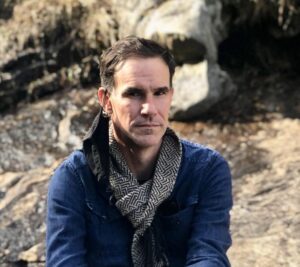 Mar 19 • 6:30 pm • Willson Center
Mar 19 • 6:30 pm • Willson Center
Michael Dowdy – “Tell Me about Your Bad Guys: Fathering in Anxious Times”
This (multimedia) conversation with award-winning poet and writer Michael Dowdy on his new book of creative nonfiction, Tell Me about Your Bad Guys: Fathering in Anxious Times (University of Nebraska Press, 2025), is sponsored by the department of English and the Willson Center for Humanities and Arts.
Hailing from Appalachia and currently professor of English at Villanova University, Dowdy’s work includes the poetry collection Urbilly, his study of Latinx poetry Broken Souths, and the critical anthology Poetics of Social Engagement, co-edited with Claudia Rankine.
There will be a video, music, conversation and readings, as Dowdy revisits his fallible yet earnest efforts to be a conscientious father in the midst of so many anxiety-inducing travesties—not least school shootings, emergent fascism, and environmental collapse. UGA associate professor of English and LACSI Éric Morales-Franceschini, author of the award-winning books The Epic of Cuba Libre, Autopsy of a Fall, and Syndrome, will host.
Mar 20 • 6 pm • Special Collections Libraries Building
Join UGA’s Hargrett Rare Book and Manuscript Library for a talk with Sara Idacavage, curator of the library’s exhibition “From Farms to Fast Fashion: Unraveling the Need for Sustainable Style.” Her presentation will detail the history of fashion production, as well as consumption, in the United States, dating back to the 1800s. Idacavage is a fashion historian with a background in journalism and passion for sustainability. She holds a master’s degree in Fashion Studies from Parsons School of Design and a bachelor’s degree in Fashion Merchandising from UGA, where she also completed her PhD in polymer, fiber, and textile sciences with an emphasis in international merchandising. She is currently assistant professor of journalism in the Meadows School of the Arts at Southern Methodist University.
This event is free and open to the public; a light reception will follow. The display was made possible with support from the Lucy Hargrett Draper Center and Archives for the Study of the Rights of Women in History and Law.
Mar 20 • 7:30 pm • Hodgson Concert Hall
Anoushka Shankar marks the culmination of her recent trilogy of mini-albums: ‘Chapter I: Forever, For Now,’ ‘Chapter II: How Dark it Is Before Dawn’ and ‘Chapter III: We Return to Light’ with a visionary new live show, which comes to the UGA Performing Arts Center as part of the Voices of Asia spring series.
Written and released back-to-back during two years of an experimental, creatively-charged global tour of an ever-evolving program, the performance of each Chapter infused the composition of the next. After first exploring the transient, bittersweet joy of a summer afternoon on Chapter I and an immersion into a healing, womblike night on Chapter II, Chapter III completes the cycle, leading audiences through each movement and into the strong, golden heat of morning- a time of strength, wisdom and change.
With 30 years’ performance since her teenaged debut, eleven Grammy nominations and an Honorary Degree in Music from Oxford University under her belt, Anoushka has spent her career redefining the conventions of the sitar. Alongside an ensemble celebrated for their endless virtuosity, sensitivity and ear for improvisation, this show sees Anoushka expand the vocabulary of her sitar, looping and bending sound to create a bold new Indo-futurist vision for her music.
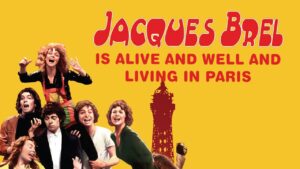 Mar 21 • 10:20 AM • Fine Arts 400 (Balcony Theatre)
Mar 21 • 10:20 AM • Fine Arts 400 (Balcony Theatre)
Daniel Smith is associate professor of theatre studies at Michigan State University and, in Spring 2025, Martha Daniel Newell Visiting Scholar at Georgia College and State University. He is a professional dramaturg and a specialist of French-language theatre and theatre translation.
The 1968 Off-Broadway hit Jacques Brel Is Alive and Well and Living in Paris had a long afterlife with numerous revivals and a film version. But the musical currently exists in a state of suspended animation because the Brussels-based Brel Foundation (managed by Brel’s daughter France Brel) has not granted rights for productions since 2017. This talk will explore the complicated cultural exchange in which translator Eric Blau and adaptor/performer Mort Shuman used localization to make Brel’s songs legible to an American audience, while creating a fantasy of Frenchness and maintaining some aspects of Brel’s Franco-Belgian identity.
 Mar 21 • 3 pm • Miller Learning Center 214
Mar 21 • 3 pm • Miller Learning Center 214
The spread of democracy across the Global South has taken many different forms, but certain features are consistent: implementing a system of elections and an overarching mission of serving the will and well-being of a country’s citizens. But how do we hold politicians accountable for such a mission? How are we to understand the efficacy of the policies they put forth? In Indicators of Democracy Diana Graizbord, assistant professor of sociology and Latin American and Caribbean Studies at UGA, exposes the complex, often-hidden world of the institutions that are meant to ensure democratic accountability and transparency. Taking the case of Mexico’s National Council for the Evaluation of Social Development Policy (CONEVAL), Graizbord provides a deep theory of what happens when democratic aspirations intersect with technocratic ambitions. Analyzing what it takes to establish and sustain monitoring and evaluation as a form of official state expertise, Graizbord is able to put forward the contours of technodemocracy—a democratic political project that hinges on the power of experts to shape politics in unexpected but profound ways.
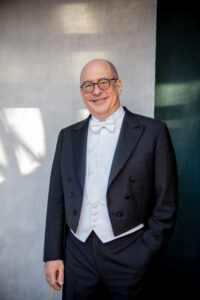 Mar 24 • 5 pm • Edge Recital Hall
Mar 24 • 5 pm • Edge Recital Hall
POSTPONED: Delta Visiting Chair Robert Spano on the Atlanta School of Composers
POSTPONED: Robert Spano Delta Chair events
Unfortunately, the events scheduled for Monday, March 24 with Delta Visiting Chair for Global Understanding Robert Spano will be postponed due to illness. These include his talk “Behind the Baton: An Inside Look at How Major Orchestras Operate” at 11:30 a.m., a workshop with students in the Hugh Hodgson School of Music at 2 p.m., and a talk on the Atlanta School of Composers at 5 p.m. We are working to reschedule these events and will announce our revised plans as soon as possible.
The Willson Center for Humanities and Arts and the Hugh Hodgson School of Music will welcome the renowned conductor and orchestra director Robert Spano to UGA and Atlanta March 21-24, 2025 as the Willson Center’s annual Delta Visiting Chair for Global Understanding. Spano’s visit, which will include two public talks on campus and a workshop for UGA student composers with the Atlanta Symphony Orchestra, is part of the Willson Center’s Global Georgia public event series.
Spano is music director of the Fort Worth Symphony Orchestra and Music Director Laureate of the ASO, where he served as music director for 20 years. He will begin a three-year term as music director of the Washington National Opera with the 2025-2026 season.
Spano has won four Grammy Awards and been nominated for eight, all for recordings with the ASO. He received the Georgia Governor’s Award for the Arts and Humanities in 2020, and was inducted into the Georgia Music Hall of Fame in 2012 – one of just two classical musicians who have been so honored. Spano has served as music director of the Aspen Music Festival and School since 2011, overseeing hundreds of events and educational programs for students and young musicians, and directs the Aspen Conducting Academy. He is currently principal conductor of the Rhode Island Philharmonic Orchestra and Music School, and will transition to principal guest conductor for its 2025-2026 season.
UGA music composition students will participate in a workshop with Spano and ASO musicians in Atlanta on Friday, March 21. The students will meet privately with Spano before a public reading and rehearsal of their works by the orchestra in Atlanta Symphony Hall from 11 a.m. – 1:30 p.m. The students will then participate in a post-workshop discussion with Spano and ASO musicians, which will also be open to the public.
Spano will be in residence at UGA on Monday, March 24. He will give a public talk, “Behind the Baton: An Inside Look at How Major Orchestras Operate,” in partnership with the Music Business Program at 11:30 a.m. in Room 350 of the Miller Learning Center, and another public presentation at 5 p.m. in the Hodgson School’s Edge Recital Hall. Spano’s 5 p.m. talk will focus on the Atlanta School of Composers, a group including Jennifer Higdon, Christopher Theofanidis, Osvaldo Golijov, Michael Gandolfi, and Adam Schoenberg, whose works Spano helped to commission and premiere throughout his tenure with the Atlanta Symphony. He will reflect on his cultivation of this important collection of 21st-century orchestral music, and share audio examples from performances.
The Hodgson School has held two previous student composing workshops with Spano and the ASO, in 2018 and 2022, each with primary support from a Willson Center Public Impact Grant.
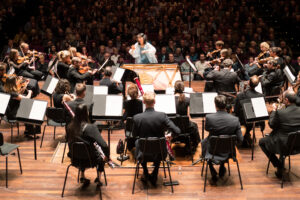 Mar 25 • 7:30 pm • Hodgson Concert Hall
Mar 25 • 7:30 pm • Hodgson Concert Hall
Mahler Chamber Orchestra: Mitsuko Uchida, Piano and Director
A peerless interpreter of the works of Mozart, Schubert, Robert Schumann, and Beethoven, Mitsuko Uchida is widely celebrated as one of the most revered artists of our time. She has enjoyed a close relationship over many years with the world’s greatest orchestras and has been an artistic partner of Berlin’s Mahler Chamber Orchestra since 2016. These collaborators have undertaken a five-year project to explore the full breadth of Mozart’s piano concertos. They bring two of them (Nos. 18 and 21) to Hodgson Concert Hall for a UGA Presents debut that promises to be delightful and remarkable at every turn.
This event is presented by the UGA Performing Arts Center as part of the Voices of Asia spring series.
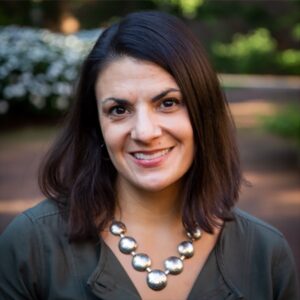 Mar 26 • 2 pm • Georgia Museum of Art
Mar 26 • 2 pm • Georgia Museum of Art
Gallery Talk by Paola De Santo – “Beyond the Medici: The Haukohl Family Collection”
Paola De Santo, associate professor of Italian at UGA, will give a gallery talk in the exhibition “Beyond the Medici: The Haukohl Family Collection.” Her talk will expand on the exhibition through the lens of her expertise in gender and the Italian baroque.
De Santo’s current research focuses on the literature and culture of early modern Italy, particularly women’s writing and performance.
Mar 26 • 4 pm • Chapel
Betty Jean Craige Lecture: Charles Johnson – Reading and Conversation
This event is presented as the Department of Comparative Literature and Intercultural Studies’s annual Betty Jean Craige Lecture, co-sponsored by the Willson Center for Humanities and Arts and the UGA Humanities Council as part of the university’s 2025 Humanities Festival and the Willson Center’s Global Georgia public events series. Author Charles Johnson will read from his work, then take part in a conversation with Hyangsoon Yi, professor of comparative literature and intercultural studies, and Caroline Medine, All Shall Be Well Professor in Religion and director of the Institute for African American Studies.
The Betty Jean Craige Lecture honors Craige, University Professor Emerita of Comparative Literature and a former director of the Willson Center. The Institute for African American Studies, the department of English, and the Creative Writing Program are also co-presenters of the event.
Charles Johnson is the author of 27 books, among them the novels Middle Passage, Oxherding Tale, Faith and the Good Thing, and Dreamer; the story collections The Sorcerer’s Apprentice (nominated for a PEN/Faulkner award), Soulcatcher and Other Stories, and Dr. King’s Refrigerator and Other Bedtime Stories; and works of philosophy and criticism such as Being and Race: Black Writing Since 1970 and Turning the Wheel: Essays on Buddhism and Writing.
He is also a screenwriter, essayist, professional cartoonist, international lecturer, and for 20 years served as fiction editor of Seattle Review. He received the 1990 National Book Award (fiction) for Middle Passage, NEA and Guggenheim fellowships, a Writers Guild Award for his PBS drama “Booker,” two Washington State Governor’s Awards for literature, the Academy Award for Literature from the American Academy of Arts and Letters, and numerous other prizes and honorary degrees. In 1998 he received a John D. and Catherine T. MacArthur Fellowship (“genius” grant), and in 2003 literary scholars founded the Charles Johnson Society at the American Literature Association.
Johnson is Pollock Professor Emeritus of English at the University of Washington.
Mar 27 • 5:30 pm • Jackson Street Building 125
Ferdia Lennon – Reading and Conversation
This event is presented by the Willson Center for Humanities and Arts and by the UGA Humanities Council as part of the university’s 2025 Humanities Festival, in partnership with the departments of English and classics. It is also part of the Willson Center’s Global Georgia public events series and UGA’s Spring Signature Lecture Series.
Ferdia Lennon was born and raised in Dublin. He holds a BA in History and Classics from University College Dublin and an MA in Prose Fiction from the University of East Anglia. Glorious Exploits is his first novel. A Sunday Times bestseller, it was adapted for BBC Radio 4 and was the winner of the Waterstones Debut Fiction Prize and the Bollinger Everyman Wodehouse prize for comic fiction for 2024. Lennon has also been shortlisted for the world’s largest and most prestigious literary award for young writers, the Swansea University Dylan Thomas Prize.
Glorious Exploits was published in the U.S. by MacMillan in 2024, and will be released in paperback in March, 2025. Along with winning the Waterstones and Bollinger prizes, it was shortlisted for the Nero Book Award for Debut Fiction (formerly the Costa Book Awards) and for the Newcomer of the Year by the Irish Book Awards, and was longlisted for the Carnegie Medal of Excellence.
From the publisher:
On the island of Sicily amid the Peloponnesian War, the Syracusans have figured out what to do with the surviving Athenians who had the gall to invade their city: they’ve herded the sorry prisoners of war into a rock quarry and left them to rot. Looking for a way to pass the time, Lampo and Gelon, two unemployed potters with a soft spot for poetry and drink, head down into the quarry to feed the Athenians if, and only if, they can manage a few choice lines from their great playwright Euripides. Before long, the two mates hatch a plan to direct a full-blown production of Medea. After all, you can hate the people but love their art. But as opening night approaches, what started as a lark quickly sets in motion a series of extraordinary events, and our wayward heroes begin to realize that staging a play can be as dangerous as fighting a war, with all sorts of risks to life, limb, and friendship.
Told in a contemporary Irish voice and as riotously funny as it is deeply moving, Glorious Exploits is an unforgettable ode to the power of art in a time of war, brotherhood in a time of enmity, and human will throughout the ages.
Those in need of any accommodations in order to attend this event should contact Dave Marr, Willson Center director of communications, at davemarr@uga.edu at least seven days before the event.
Mar 28 • 2 pm • Main Library Third Floor Graduate Reading Room
Ferdia Lennon and Frank Shovlin – “A Conversation about Fiction and Biography”
Novelist Ferdia Lennon, author of the award-winning Glorious Exploits, and biographer Frank Shovlin, professor of Irish literature in English at the University of Liverpool, will have a public conversation on writing fiction and biography presented by the Willson Center for Humanities and Arts, the department of English, the department of Classics, and the Creative Writing Program. During his visit to UGA, Lennon will also have a reading and conversation at 5:30 p.m. on Thursday, March 27 in Room 125 of the Jackson Street Building as part of the Humanities Festival and the Willson Center’s Global Georgia public event series. The March 27 event is also part of the university’s Spring Signature Lecture Series.
Ferdia Lennon was born and raised in Dublin. He holds a BA in History and Classics from University College Dublin and an MA in Prose Fiction from the University of East Anglia. Glorious Exploits is his first novel. A Sunday Times bestseller, it was adapted for BBC Radio 4 and was the winner of the Waterstones Debut Fiction Prize and the Bollinger Everyman Wodehouse prize for comic fiction for 2024. Lennon has also been shortlisted for the world’s largest and most prestigious literary award for young writers, the Swansea University Dylan Thomas Prize.
Glorious Exploits was published in the U.S. by MacMillan in 2024, and will be released in paperback in March, 2025. Along with winning the Waterstones and Bollinger prizes, it was shortlisted for the Nero Book Award for Debut Fiction (formerly the Costa Book Awards) and for the Newcomer of the Year by the Irish Book Awards, and was longlisted for the Carnegie Medal of Excellence.
Frank Shovlin is from the west of Ireland and was educated at the universities of Galway and Oxford before taking up a lectureship at the Institute of Irish Studies, University of Liverpool where he is now a professor. He has published widely on a range of Irish writers, primarily from the twentieth century. In 2018–19 he was holder of a British Academy Senior Research Fellowship to work on his critically acclaimed edition of John McGahern’s letters. He is currently a fellow at the National Humanities Center.
Mar 27-28 • Multiple times and locations
This symposium is sponsored by the Willson Center through a Public Impact Grant and co-hosted by the Georgia Museum of Art and the Lamar Dodd School of Art. It is organized in conjunction with three exhibitions at the University of Georgia:
- “The Awe of Ordinary Labors: 20th-Century Paintings from Ukraine,” Georgia Museum of Art (January 18 – June 1, 2025)
- “Ukraine’s People Revealed,” Foundation Gallery, Lamar Dodd School of Art (February – April 2025)
- “Demons, Prophets, and Détente,” contemporary art installation of ceramic sculpture by Richard N. Johnson, Foundation Gallery, Lamar Dodd School of Art (February – April 2025)
Highlights of the symposium include an opening reception, a panel discussion with the curators of “Ukraine’s People Revealed,” a keynote lecture by Ukranian art expert Myroslava Mudrak and a lecture on “The Soviet Republic of Ukraine” by Joseph Kellner, assistant professor of history at UGA. All events are free and open to the public unless otherwise indicated. For a complete symposium schedule, see the Georgia Museum of Art’s listing.
 Apr 2 • 3:30 pm • Baldwin Hall 480 (Pinnacle Room)
Apr 2 • 3:30 pm • Baldwin Hall 480 (Pinnacle Room)
Analiese Richard – “Before the Wall: Science and Environmental Governance on the US-Mexico Border”
Analiese Richard is professor of humanities at the Universidad Autónoma Metropolitana-Cuajimalpa (Mexico City). She is part of the “Equilibrium” academic body, in addition to belonging to the National System of Researchers.
In the early 1980s, a time of heightened geopolitical tension between the First and Third Worlds, Mexico and the US negotiated the first environmental agreement on the border region, the La Paz Agreement. A key dispute between the parties centered on the use of a relatively new technoscientific instrument, Environmental Impact Assessment (EIA), to govern transborder economic and infrastructural expansion. Using archival and ethnographic research, Richard traces the debates that arose both among US government agencies and between Mexican and US negotiators over requiring EIA, which originated in and was promoted worldwide by the US, but which the State Department sought to exclude from the La Paz Agreement. These debates yield important insights into how both countries approached environmental governance in the early days of its global spread, as well as the precedents this lopsided process set for later projects of environmental and economic cooperation such as NAFTA and USMCA.
Apr 2 • 4 pm • Jackson Street Building 125
Wade Davis – “The Wayfinders: Why Ancient Wisdom Matters in a Modern World”
Wade Davis, professor of anthropology and the BC Leadership Chair in Cultures and Ecosystems at Risk at the University of British Columbia, will give the 2025 Odum Environmental Ethics Lecture. Davis’s talk, based on his 2009 book The Wayfinders: Why Ancient Wisdom Matters in the Modern World, is presented by the Environmental Ethics Certificate Program and the Willson Center for Humanities and Arts.
An ethnographer, writer, photographer and filmmaker, Davis served as Explorer-in-Residence at the National Geographic Society from 2000-2013. Named by the NGS as one of the Explorers for the Millennium, he has been described as “a rare combination of scientist, scholar, poet and passionate defender of all of life’s diversity.” Davis is the author of hundreds of articles and 23 books including The Serpent and the Rainbow (1986), One River: Explorations and Discoveries in the Amazon Rain Forest (1996), Magdalena: River of Dreams (2020), and The Wayfinders.
Every culture is a unique answer to a fundamental question: What does it mean to be human and alive? In this talk, Wade Davis leads us on a thrilling journey to celebrate the wisdom of the world’s indigenous cultures. In Polynesia we set sail with navigators whose ancestors settled the Pacific ten centuries B.C. In the Amazon we meet the descendants of a true Lost Civilization, the Peoples of the Anaconda. In the Andes we discover that the Earth really is alive, while in the far reaches of Australia we experience Dreamtime, the all-embracing philosophy of the first humans to walk out of Africa. We then travel to Nepal, where we encounter a wisdom hero, a Bodhisattva, who emerges from 45 years of Buddhist retreat and solitude. And finally, we settle in Borneo, where the last rainforest nomads struggle to survive.
Understanding the lessons of this journey will be our mission for the next century. Of the world’s 7000 languages, fully half may disappear within our lifetimes. At risk is a vast archive of knowledge and expertise, a catalogue of the imagination that is the human legacy. Rediscovering a new appreciation for the diversity of the human spirit, as expressed by culture, is among the central challenges of our time.


